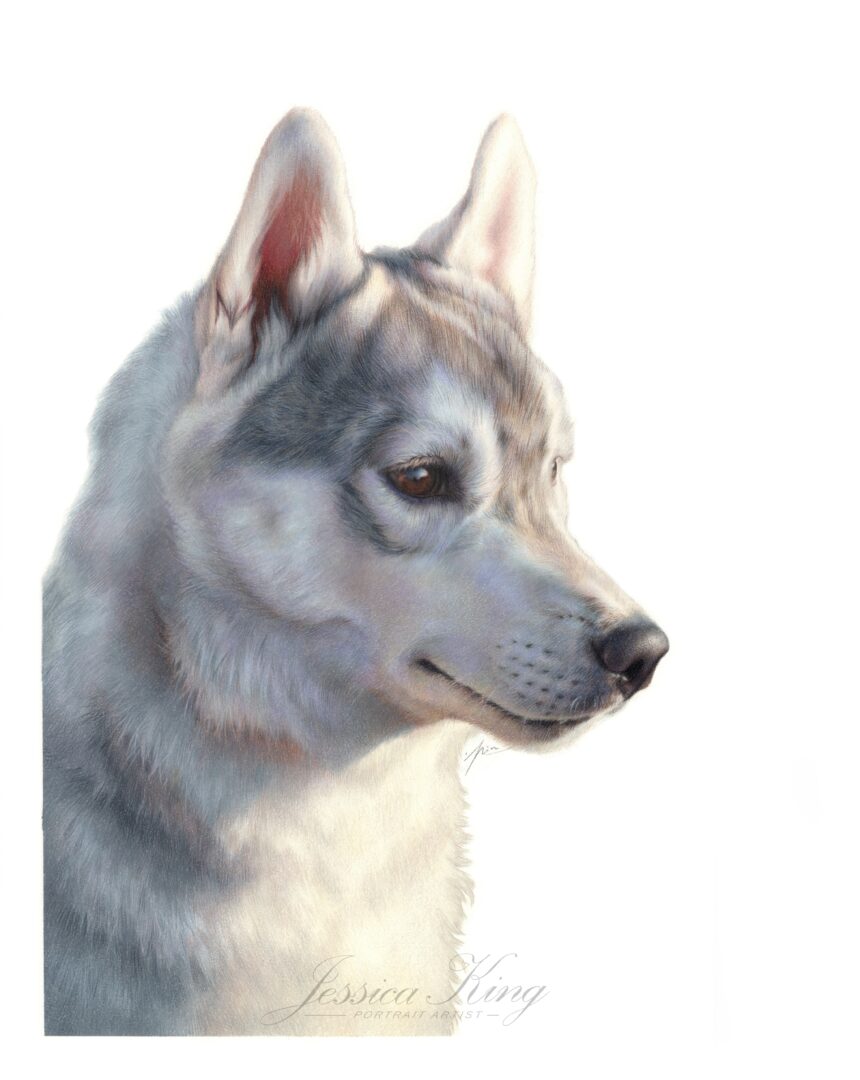We recently had the chance to connect with Jessica King and have shared our conversation below.
Jessica, a huge thanks to you for investing the time to share your wisdom with those who are seeking it. We think it’s so important for us to share stories with our neighbors, friends and community because knowledge multiples when we share with each other. Let’s jump in: What do you think is misunderstood about your business?
One of the biggest misconceptions about my work is that it’s ‘just copying a photograph’. They think that because I work from photographs and aim for photo-realism, that the time and effort I put into a portrait is redundant, and that the work itself lacks that creative spark other styles might have. At that point, they tell me, why not just frame a photograph or ask generative AI to do it for me and save myself the trouble?
What people don’t often consider when they are viewing a hyper-realistic piece, is that artistic interpretation remains in tact. You could give a hundred realism artists the same batch of photographs, and we would all see something different within them worth capturing. Often we are combining elements from several references, enhancing details, adjusting composition, and in the case of a portrait artist, bringing out the subject’s personality in a way that requires a human eye to see. There’s deep emotional value in what I do, especially when the portrait is a way for someone to remember a beloved pet. I just wish more people understood how much time, heart, and invisible labour goes into every piece.
Can you briefly introduce yourself and share what makes you or your brand unique?
I’m a pet portrait artist based in Yorkshire, with my main specialism being realistic coloured pencil work. Drawing began as a childhood passion, but my shift into pet portraiture is relatively recent and happened just before lockdown. My comfort zone was drawing humans, which made the thought of taking on my first animal commission quite daunting, but once I started, I fell in love with it and refused to draw anything else from then on.
The decision to turn this into a full-time business came after I experienced a severe mental and physical burnout, which, at the time, was caused by undiagnosed autism. I had been pushing myself too hard for too long, and eventually developed Chronic Fatigue Syndrome as a result, which made a traditional 9–5 impossible. After my diagnoses, my business became a lifeline, allowing me to maintain my independence and build something meaningful around what the two things I love most: drawing and animals!
Right now, I’m working on a special exhibition piece for Spring 2026: a large compilation of cat eyes, drawn from photos submitted by my followers. The aim is to include up to 50 cats in the collection.
Appreciate your sharing that. Let’s talk about your life, growing up and some of topics and learnings around that. What did you believe about yourself as a child that you no longer believe?
As a child, I believed that something was deeply wrong with me. I felt like an alien amongst my peers. I was academic and high-achieving, but I struggled to keep up with their pace and I blamed myself for that. I didn’t understand why bright lights made me feel sick, why noise physically hurt, or why I’d sometimes faint in public places. I just thought I had to push through it, like everyone else seemed to.
I was the first in my family to go to university, and there was a lot of pressure to pursue a “real job”. My academic success promised them something stable and respectable but those expectations became too much. When I eventually dropped out of university due to mental health struggles, I felt like I’d let everyone down. But what I didn’t know at the time was that I was autistic, and that all the ways I had forced myself to keep up had taken a serious toll on my health. I developed Chronic Fatigue Syndrome and became disabled in a way I never had been before.
What I no longer believe is that I have to measure my worth by how well I can measure to others’ expectations or keep up. The fact is, I was unsupported and undiagnosed in an environment that wasn’t built for me to succeed. Now, I’ve created a life and a business that works with who I am, not against it.
What have been the defining wounds of your life—and how have you healed them?
The defining wounds of my life began early. As an undiagnosed autistic child, I was heavily bullied throughout school and grew up with very low self-esteem. At home, things were unstable. There was addiction, domestic violence, and by the time I was ten my Mum had become a recluse and has remained that way since. It wasn’t a safe environment, and I learned to hide behind achievement.
As such I became the first in my family to go to university, but I also dropped out after only a year. Everyone had such high expectations of me and I couldn’t keep up. My mental health hit rock bottom after that.
Healing has been a long journey and I am nowhere near the end of it. Getting my autism diagnosis gave me the language and understanding I needed to have compassion for myself, and building my pet portrait business has been vital in that healing. It’s something I can do on my own terms, in a way that works around my specific needs. It has given me a sense of independence and a way to connect with others after years of feeling like I didn’t fit in with them.
Sure, so let’s go deeper into your values and how you think. What important truth do very few people agree with you on?
Rest is productive. We live in a world addicted to this idea of the grind; of constant growth, output, and self-improvement. Especially in the age of social media, we are being groomed to think there is a right way to perform for others, and I say perform because we are encouraged to make ourselves palatable for online consumption and algorithms.
But I think it’s okay, and ESSENTIAL, to simply exist without needing to perform or to be watched. There is no single correct way to do anything: career, family, neurotypical routine, none of it applies to absolutely everyone.
Before we go, we’d love to hear your thoughts on some longer-run, legacy type questions. How do you know when you’re out of your depth?
Honestly, I almost always feel out of my depth. I’m someone who gets overwhelmed easily: by noise, decisions, social situations, even small changes in plans or my routine. It is constant. But I’m learning that overwhelm doesn’t equal incapable.
A lot of my current journey is checking in with myself. Is this ACTUALLY too much, or am I just afraid it will be? Am I unsafe or just uncomfortable? Sometimes being out of my depth looks different from day to day.
Contact Info:
- Website: https://JessicaKingArt.com
- Instagram: JessicaKingArt
- Facebook: Jessica King Portrait Artist
- Other: Tiktok: @JessicaKingArt
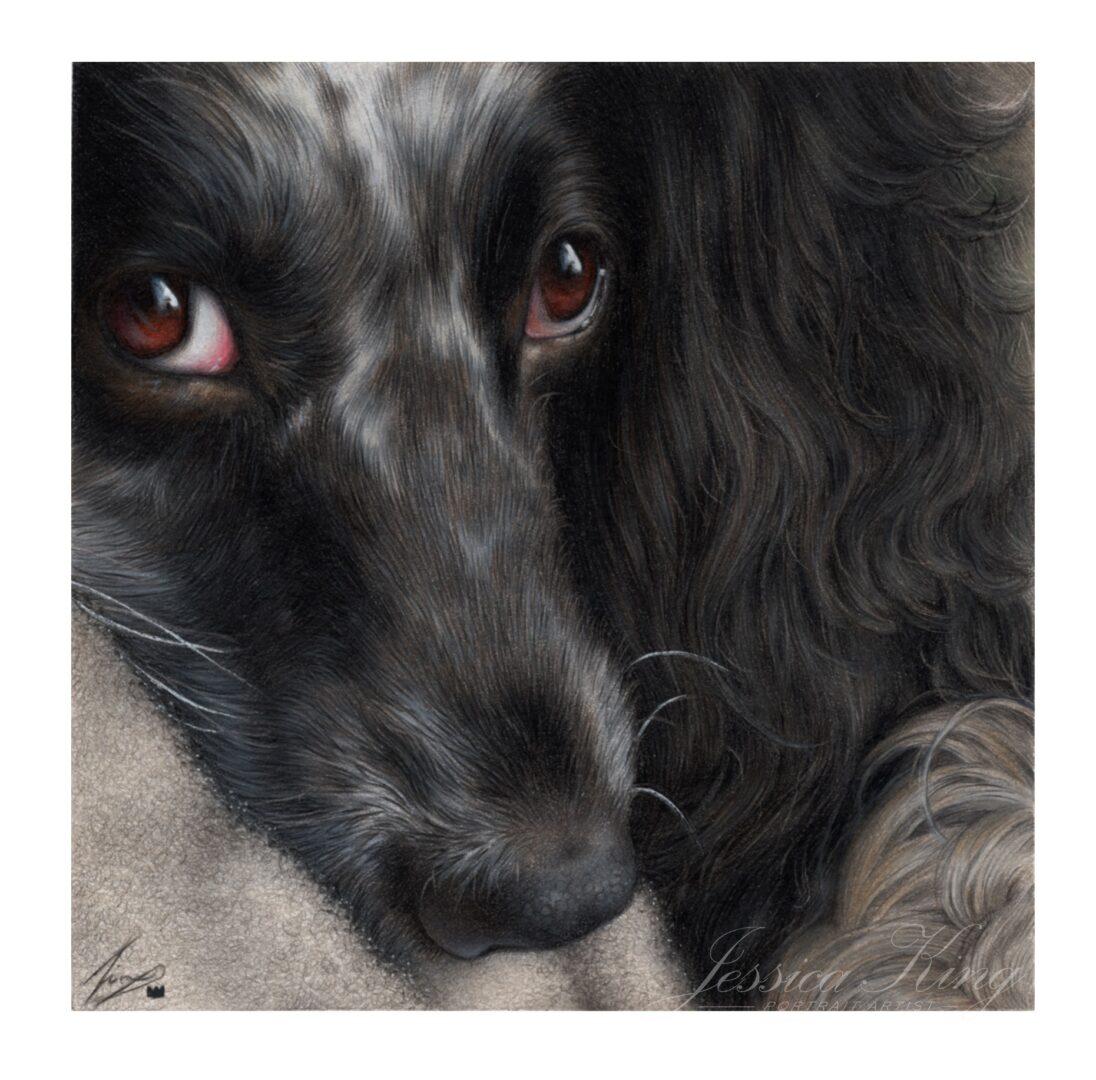
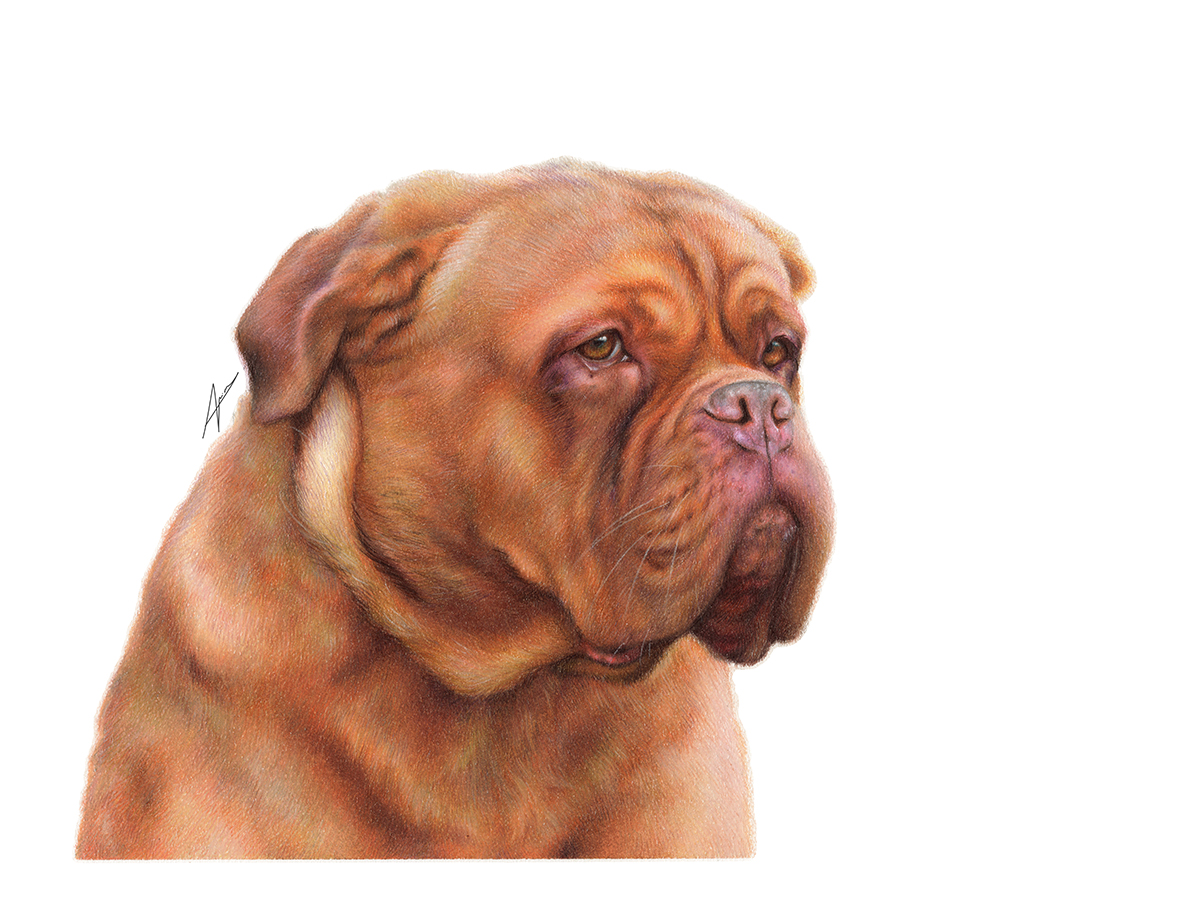
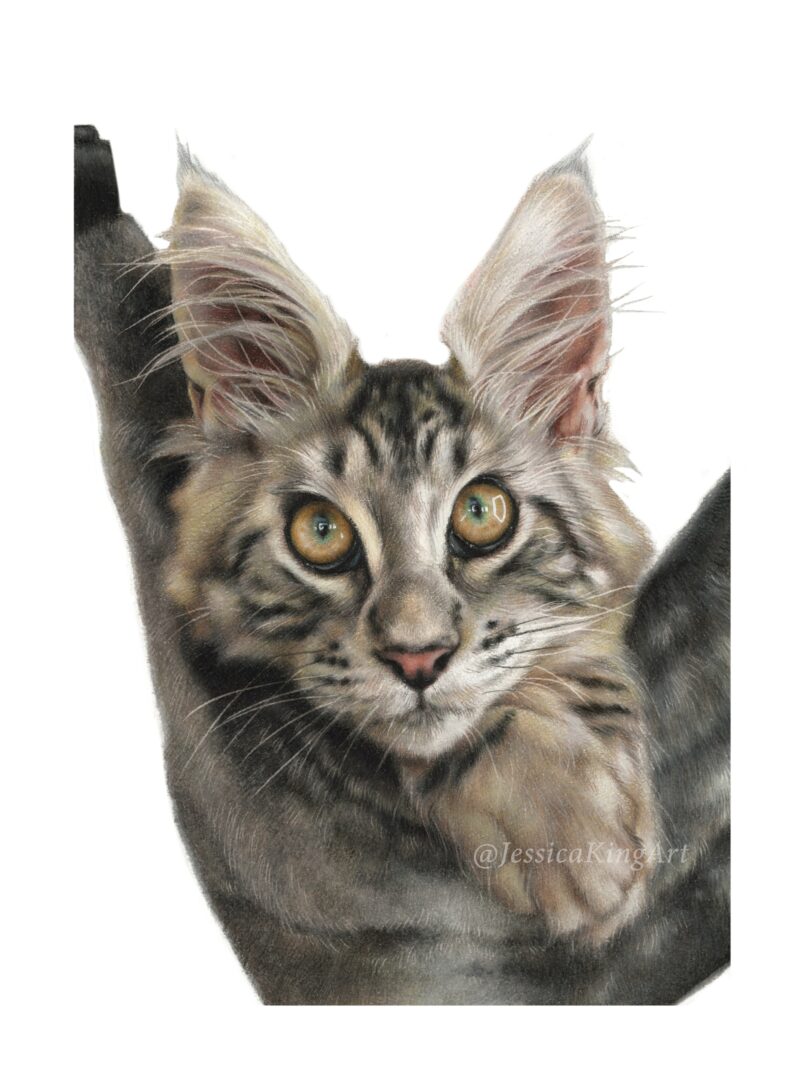
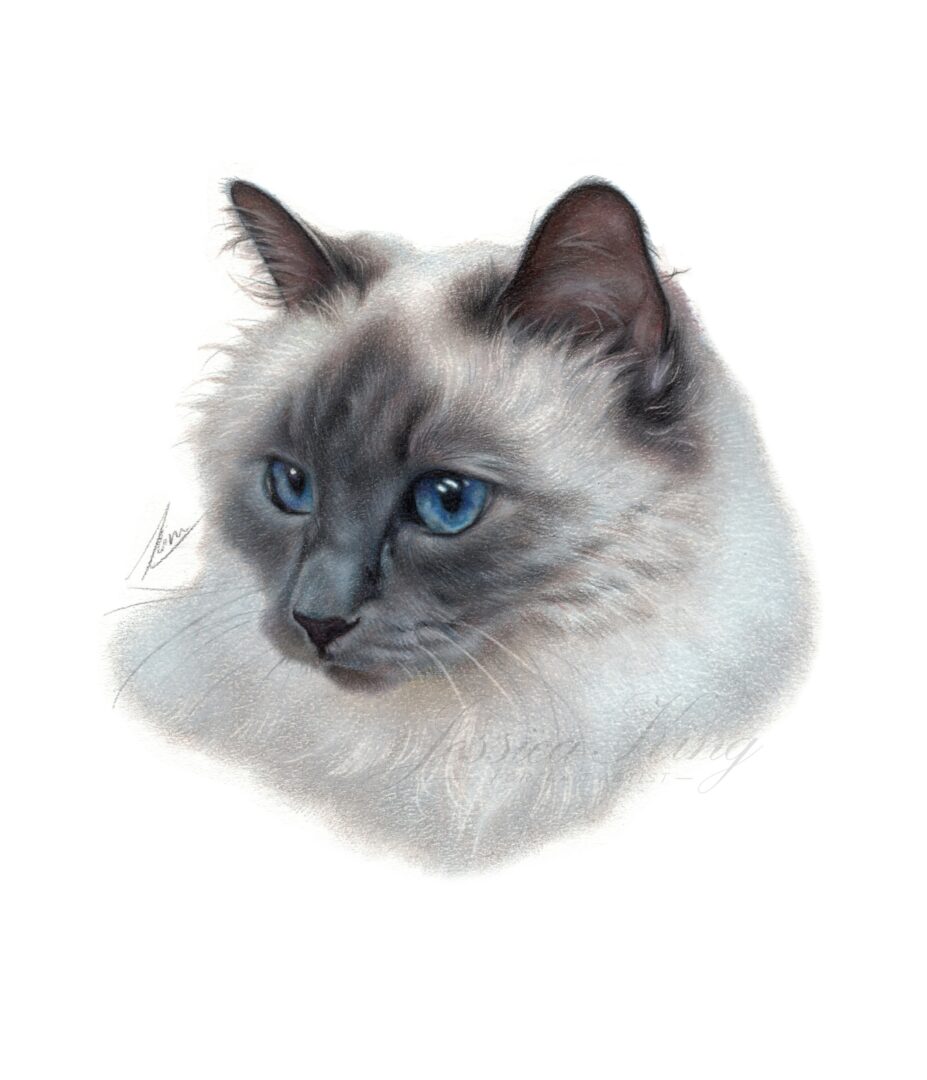
so if you or someone you know deserves recognition please let us know here.

